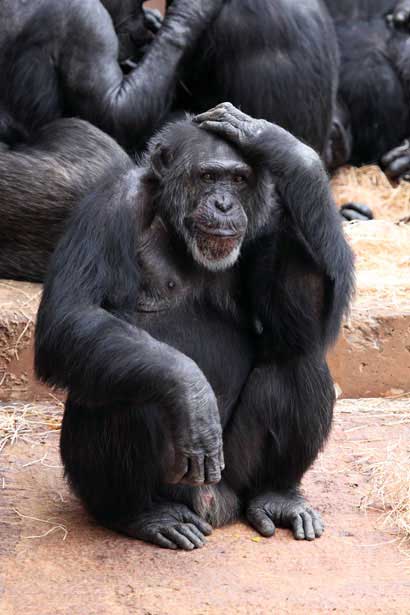
Language is interesting. We know that communication can become difficult when two people speak different languages. A translator is brought in to help.
But what if they are speaking the same language but not aware of the meanings of phrases being used?
Especially those that involve animals, like monkeys and donkeys?
Way back in August 2012, I hosted my first guest blogger, Andrea Feinberg whose post got many viewers and 2 comments as well –one on the blog and another in a LinkedIn group. Both referred to the ‘monkey on the back’ which brought back memories of the chaos that a monkey created in an office a few years back.
Crisis management that turned into monkey management
Boss and team were dealing with reporting deadlines for a host of clients. A new client assigned to the team who needed to be handled literally with kid gloves had created an untimely demand.
Crisis management brainstorming over, boss made the innocent remark “Okay, now that we have taken that monkey off our back let us look at the other reports”.
Most of us at the meeting understood what he had said and continued with the meeting. One rookie auditor took the meaning literally. Before long, our department had monkey mania.
Everyone was being called a monkey. NO ONE was spared, be it client, manager, colleague, support staff and worse- clients. A new meeting had to be called to explain the monkey on the back phrase. Soon things returned to normal.
(Not sure about the meaning of this idiom? Check your understanding here a monkey on back )
Holding onto the past
Coming back to monkeys and backs, there is another question worth asking – how long do you hold onto things that are best left in the past?
Those who live in the past do not get to experience the gift of the present which too shall sooner or later become the past.
Immersed in a time that will never return, they miss out on living in the present and old patterns are repeated because they do not know how to change.
There are lessons to be learned from the past – when things have gone wrong, understanding what it was and using the new knowledge implement it in the present so that the future becomes better.
Understanding the past helps us to understand ourselves and break self-limiting patterns and beliefs that prevent us from moving onto the future and goals that we wish to achieve.
The world that we live in is not stationary. It keeps changing. By holding back with old patterns and beliefs that no longer serve us or benefit us, we keep those monkeys on our back.
There is a beautiful traditional tale about the Two Monks which brings home the same point.
Have you ever found yourself holding on to past events or experiences that serve no purpose? How do you let go and progress towards your goals? Do share your actions and tips with us in the comments box below.
Written By: Vatsala Shukla
Thinking Monkey by Petr Kratochvil



 I adhere to the Certified Coaches Alliance Code of Ethics and Standards. A copy is available on request.
I adhere to the Certified Coaches Alliance Code of Ethics and Standards. A copy is available on request.
 Let's Talk through the Connect Form:
Let's Talk through the Connect Form: